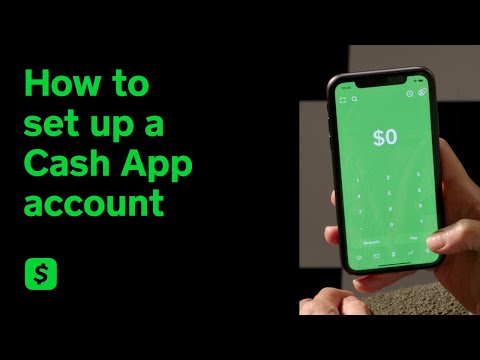Top 10: Contactless Payment Solutions

Contactless payments have, in recent years, revolutionised the way goods and services are paid for, with millions of these transactions completed around the world every single day.
Here, FinTech Magazine takes a look at the top 10 contactless payment solutions on the market.
10. Alipay
Launched in the city of Hangzhou, Alipay was originally designed to address the issue of trust between online buyers and sellers in the early days of e-commerce in China.
Fast forward 20 years and the company has grown through continuous innovation to serve more than 1.2 billion users worldwide alongside its global e-wallet partners.
Alipay works with more than 250 overseas financial institutions and supports transactions in no fewer than 27 currencies.
9. Square
Back in 2009, Square set out to change the fact that not all businesses could accept card payments and invented the first mobile card reader of its kind.
By doing so, merchants were able to take payments anywhere and thrive in what were difficult economic circumstances, to say the least.
As of 2024, Square’s extensive technology platform is allowing business owners to work more efficiently, pay employees, manage inventory, communicate with customers, book appointments, order online and so much more.
8. Stripe
Headquartered in both San Francisco and Dublin, Stripe is billed as a financial infrastructure platform for the internet.
Millions of companies around the world, from large enterprises to ambitious startups, are using Stripe to accept payments, send payouts, automate financial processes, accelerate new business opportunities and, ultimately, grow their revenue.
The company’s Tap to Pay solution is offered through the Stripe Terminal iOS and Android SDKs, and includes support for American Express, Mastercard, Visa and NFC-based mobile wallets (Apple Pay, Google Pay, and Samsung Pay).
7. Cash App
Cash App was initially built to take the hassle out of peer-to-peer payments, and started out as a simple product with a single purpose.
However, over the years it has evolved to become a dynamic financial ecosystem, offering a range of services, including Afterpay (Clearpay), to almost 50 million active users.
Cash App Pay is a fast, easy contactless payment method allowing Cash App customers to pay merchants by scanning a simple QR code, and is available for use with both in-person and online merchants.
6. Zelle
Run by parent company Early Warning Services, itself owned by the biggest US banks, Zelle was launched in 2017 as the successor to the clearXchange payment service.
Once customers are enrolled with Zelle, all they need is an email address or US mobile phone number to send money to friends or family straight from their banking app, even if they bank with a different provider.
Zelle is already integrated into more than 2,000 US banking apps and transactions tend to take a matter of minutes.
5. Venmo
Across much of the US, Venmo has become something of a byword for sending money between friends and family.
What started out as a simple SMS platform to send and receive money has evolved into a social payments app allowing people to pay, split and share their experiences.
Since 2009, when Venmo was launched by college roommates who wanted a better way to pay each other, the company has prided itself on offering a straightforward payment experience. Sixty million users and hundreds of millions of transactions suggests it must be doing something right.
4. PayPal
With a legitimate claim to being the original digital payments platform, PayPal is recognisable around the world, and continues to champion possibilities for everyone by making money management fast, easy and more enjoyable.
The organisation’s central hope is to unlock opportunities for people in their everyday lives and empower the millions around the world who trust, rely and use its technology.
At present, PayPal is on a mission to revolutionise e-commerce using AI, and recently unveiled no fewer than six innovations that the company is piloting and bringing to market this year.
3. Samsung Pay
With Samsung Pay, customers can use Galaxy devices, such as their smartphone or smartwatch, to shop with debit and credit cards virtually anywhere contactless payments are accepted.
Making the most of this contactless payments technology is as simple as adding cards to Samsung Wallet and tapping to pay.
Each transaction is covered by bank fraud protection and authenticated by either fingerprint or PIN number, while tokenisation adds extra layers of security. What’s more, Samsung Knox technology constantly monitors the user’s phone to keep information safe, encrypting card information in a separate, secure data vault at all times.
2. Google Pay
Formerly Google Wallet and Android Pay, Google Pay in its current form was born in 2018.
It’s a fast, easy way to pay on various websites, within apps and also in store using cards saved to the customer’s Google Account. Android users simply need to download Google Wallet in order to pay with their devices.
Shoppers hoping to use Google Pay when they checkout need only to look for the relevant icon, with no internet connection required for in-person transactions.
Google is vocal about its efforts to protect payment information using industry-leading security technologies, allowing customers to pay with peace of mind.
1. Apple Pay
In countless countries, Apple Pay has almost become a synonym for contactless payments, such is its dominance of these markets.
The iPhone – to which Apple Pay is already built in – remains the most popular smartphone on the market, and a growing proportion of users are activating the feature, making the most of its simple, tap-to-pay functionality.
Apple Pay is the fast, easy alternative to cards and cash, and can be set up in a matter of seconds for use on iPhone, Apple Watch, Mac and iPad.
Launched a decade ago, the payment method is these days accepted on millions of websites and apps.
******
Check out the latest edition of FinTech Magazine and sign up to our global conference series – FinTech LIVE 2024.
******
FinTech Magazine is a BizClik brand.


